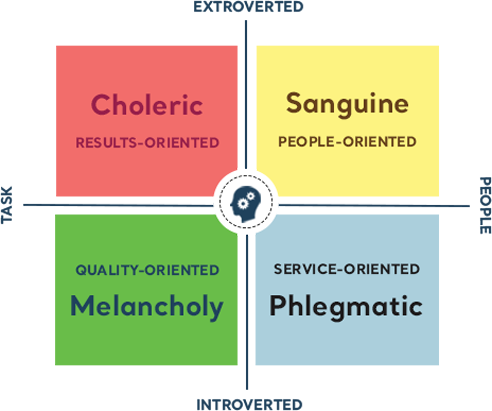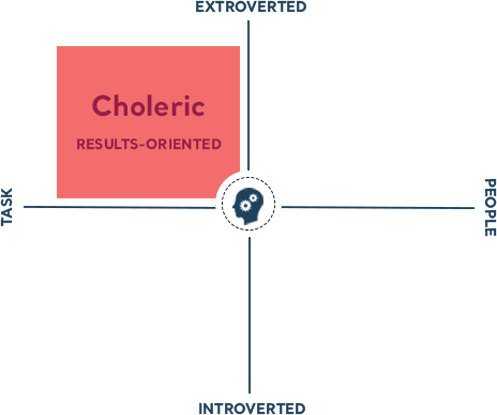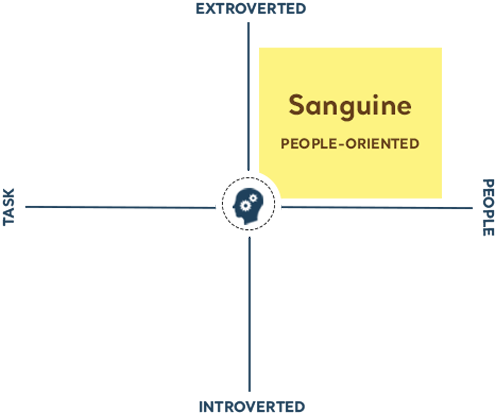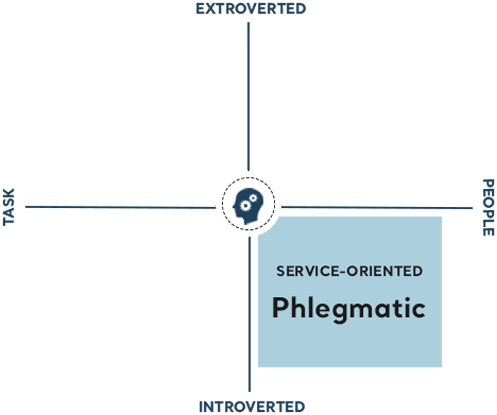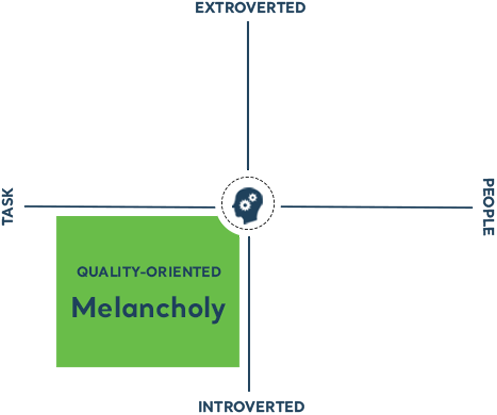The Sanguine temperament has three combinations: Sanguine-Choleric, Sanguine-Phlegmatic, and Sanguine-Melancholy.
The traits of the primary temperament, Sanguine, may be altered or modified in some significant way due to the influence of the secondary temperament. Remember, there are at least three levels of intensity of a temperament: classic, moderate, and mild. Some Sanguines will be very strong, others somewhat strong, and still others more mild. Some are “Super Sanguines” because they are so talkative and active that they can be overwhelming.
Sanguines are naturally people-oriented. They have an active, positive movement in a favorable environment. They influence their environment by encouraging others to work together.
The Sanguine is by far the most versatile of the four temperaments. The Choleric, Phlegmatic, and Melancholy are all limited in what they can do, the Sanguine is not. The Choleric temperament is the fewest in number, and the Phlegmatic and Melancholy temperaments are not change agents, preferring to adapt to their environment.
The Sanguine has the potential for the widest range of behavior due to possessing the widest range of emotions. This allows them to participate (based on their second temperament) in any kind of human activity. They like to participate in, or change, their environment. The areas of business, politics, sports, and entertainment, to name a few, are dominated by the Sanguine temperament.
The Sanguine is extroverted, fun-loving, playful, activity-prone, impulsive, entertaining, persuasive, easily amused, and optimistic. They are enthusiastic, expressive, and tend to be very affectionate. Sanguines are personable, receptive, open to others, and build relationships quickly. They are animated, excitable, approachable, accepting, and trusting of others. They will smile, and talk easily and often. Sanguines are word smiths.
It is not unusual to feel as if you have known one who is Sanguine for years after the first meeting. They make and keep friends easily. They get so involved in conversations that they easily forget about time, and are often late arriving at their destination. Sanguines are easily bored if not involved in social activity. Sanguines dislike solitude. Their attention span is based on whether or not they are interested in the person or event. They can change their focus or interest in an instant if they become bored.
When telling a story, Sanguines often exaggerate what happened or leave out important details. They make the story exciting, and they may not let the facts get in the way!
Sanguines are very competitive. They usually like sports of any kind because of their natural desire to be active and involved with people. They tend to be disorganized and easily forget where they left something. They sometimes have difficulty controlling their thoughts and emotions. Actually, they tend not to store their thoughts and feelings—if they think it or feel it, they share it!
Their voice will show excitement and friendliness. Sanguines enjoy dressing according to current fashion. They fear rejection or not making a favorable impression. Sanguines also fear others viewing them as unsuccessful. Sanguines are very effective working with others. Sanguines are easily distracted and can change quickly.

